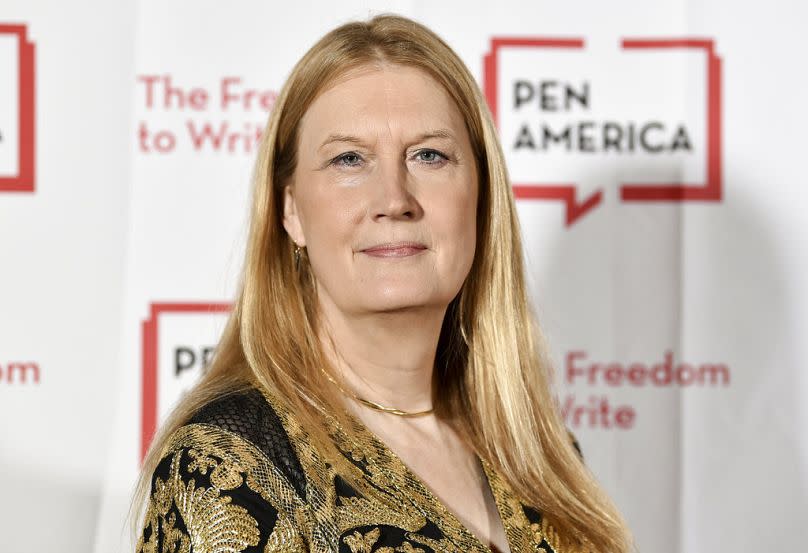PEN America cancels 2024 literary awards amid criticism over its response to Israel-Hamas war

Writers group PEN America announced it’s cancelling its annual awards ceremony – just a week before it was set to take place in New York City – after dozens of authors dropped out over the literary organisation’s response to Israel’s war on Gaza.
Sixty-one authors and translators were nominated for awards, with 28 of them withdrawing their books from consideration, according to a statement released on Monday.
PEN, a literary and free expression organisation, hands out hundreds of thousands of US dollars in prizes each year, including $75,000 (€70,000) for the PEN/Jean Stein Award for best book.
But with nine of the 10 Jean Stein finalists withdrawing, along with nominees in categories ranging from translation to poetry, the group said maintaining this year’s event was unreasonable.
“This is a beloved event and an enormous amount of work goes into it, so we all regret this outcome but ultimately concluded it was not possible to carry out a celebration in the way we had hoped and planned,” PEN America CEO Suzanne Nossel said in a statement.
Among those dropping out was debut novel finalist Rachel Eliza Griffiths, who is married to former PEN president Salman Rushdie.
The PEN awards ceremony is just one of several major events in the arts and culture world that have been derailed amid divisions over the war in Gaza – from the Berlinale Film Festival to the Venice Biennale to the Eurovision Song Contest to national literary awards in Europe.
Escalating protest and criticism
PEN America has been under fire from authors affiliated with the organisation since the war between Israel and Hamas began last October, with fierce and escalating protests aimed at the organisation. Critics claim that PEN has been favouring Israel and downplaying atrocities against Palestinian writers and journalists.
In an open letter published last month, endorsed by Naomi Klein and Lorrie Moore among others, the signers criticised PEN for not mobilising “any substantial coordinated support” for Palestinians. The letter also denounced PEN for not upholding its mission to “dispel all hatreds and to champion the ideal of one humanity living in peace and equality in one world.”
PEN has refuted these claims, citing that it has condemned the loss of life in Gaza, called for a ceasefire and helped set up a $100,000 emergency fund for Palestinian writers. To that, critics responded that the relief fund was too small and noted that PEN waited until March to endorse a ceasefire, five months after the war began.

Last week, PEN America President Jennifer Finney Boylan announced that a committee was being formed to review the organisation’s work “not just over the last six months, but indeed, going back a decade, to ensure we are aligned with our mission and make recommendations about how we respond to future conflicts.”
Jean Stein’s estate requested that the cash prize from the Stein award be donated to the Palestine Children’s Relief Fund. Her daughters and literary agent said it’s what Stein, an author and oral historian who died in 2017, would have wanted.
“Jean Stein was a passionate advocate for Palestinian rights who published, supported, and celebrated Palestinian writers and visual artists," reads a statement from Katrina Vanden Heuvel, Wendy Vanden Heuvel and Bill Clegg, on behalf of the Stein estate.
“While she established the PEN America award in her name to bring attention to and provide meaningful support to writers of the highest literary achievement, we know she would have respected the stance and sacrifice of the writers who have withdrawn from contention this year.”
Camille T. Dungy's “Soil” had been the only remaining Stein award contender.

